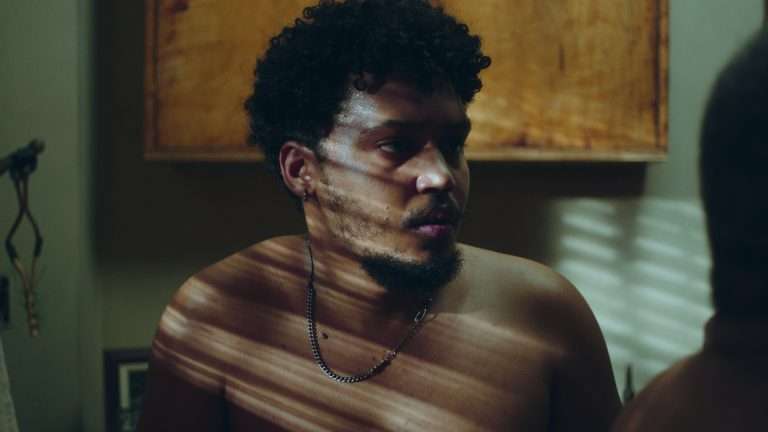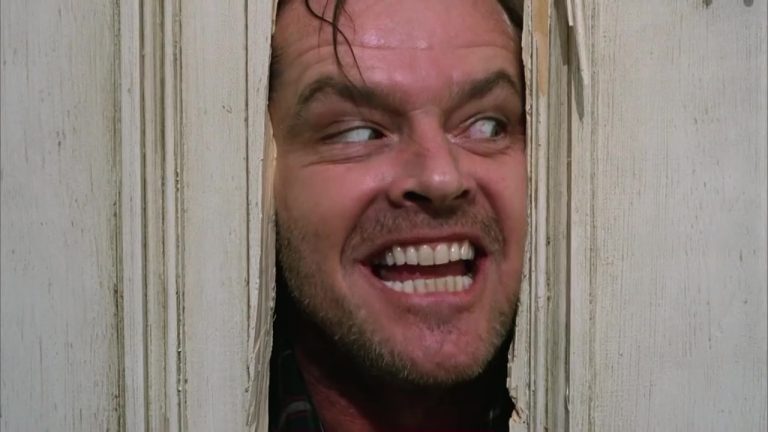In her profoundly moving documentary co-directed with Emilie Adelina Monies, “The Son and The Moon,” Roja Pakari turns the camera on herself. She fell ill right after giving birth to her son, Oskar. Diagnosed with incurable cancer of the bone marrow, she was denied any opportunity to develop a solid relationship with Oskar. He saw his mother’s home as the hospital. Tying with the present, when she’s out of the hospital, nevertheless still intensely vulnerable, the film hews together a scramble of videos shot by her over the years that also offers a rich glimpse into her Iranian heritage, which she desperately seeks to preserve.
Roja’s family fled Iran at the height of the Revolution in a quest for asylum in foreign lands. She has made short trips back to her homeland, but none with her son. This inability shapes up to be one of her biggest, most persistent sources of unease. The lack generates a recurring disquiet within her. This needling apprehension that she might not be able to take Oskar to Iran herself is leavened by the film’s occasional edges of warmth and lightness. Moments of happiness from Roja and her partner’s time before her diagnosis temper some of the melancholy that quietly grows through the narrative.
She is not just battling her frailty but also staking her claim to an ordinary life, desiring to inhabit it in all its regular rhythms. For her, normalcy has been so growingly dependent on her health that to ease back into it, she has to go through a whole new gamut of challenges and recalibrate herself accordingly. She asserts she doesn’t want to just keep living; instead, she wants to live on her own terms. She dreams of the “little everyday routines” that constitute the act of living.

For several years, the extreme physical precarity of her condition has rendered deeply vulnerable the ties that bind Roja to her son. Throughout the film, she keeps reaffirming her anguish about not being able to make up for all the time she has missed out. Therefore, she is racked by an urge to overcompensate and fill in for all that lost time as she struggles to re-situate herself within the folds of her family, especially in her teenage son, Oskar’s life. This provides the underlying dramatic tension in the film. He is a boy who has mostly seen his mother strapped to the confines of a hospital room. Her defining illness has long overtaken her place as a mother in Oskar’s life. There are these early heartbreaking moments when she talks of how she has to gently coax her son into not being scared of her.
Roja’s filming emphasizes her narrative as being one that is attempting to forge life anew. Pain and death are a constant, lingering fear that animates and propels much of Roja’s desperate quest for a connection with her son, but how the two learn to inch towards each other with tenderness, affection, and long-deferred emotional association is at the heart of the tussle. How does a mother begin to assume and demand maternal space in her child’s life, particularly when the two haven’t been able to establish the natural intimacy in their equation?
At one point, when Roja is finally discharged from the hospital and allowed to resume her family life, she remarks she has to fight in order to fully get back into the life that should have been inherently built for her. She is confronted with the necessity of not just rebuilding her life but also drawing on her past with its unshakable roots in Iran. The country, with all its tumult, tightly pulls her as she reclaims her tradition. At one point, while making one of her native dishes, she marvels at how her mother unfailingly managed to whip it up every single day.
The aching wonder of “The Son and the Moon” is in its dignified illumination of Roja’s spirit. The certainty of absolute recovery isn’t an option available to her. The fear of slipping back anytime into crushing instability drifts around her every minute. How she makes peace with it and slowly rises above it to prioritize her needs and desires is the invigorating pulse of the documentary.




![Graduation [2016] : Bengaluru International Film Festival [BIFFES]](https://79468c92.delivery.rocketcdn.me/wp-content/uploads/2016/12/Graduation-768x324.jpg)


![Brut Force [2022] review : A predictable Noir-thriller](https://79468c92.delivery.rocketcdn.me/wp-content/uploads/2022/04/Brut-Force-2022-768x432.jpg)
